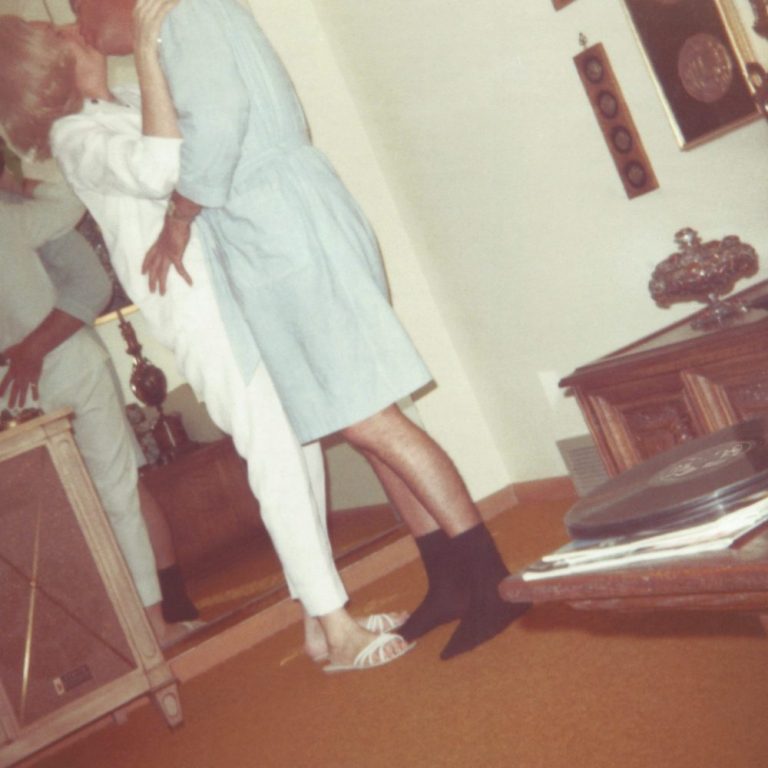I remember the day Death From Above 1979 broke up. Man, what a fucked day in 2006… There was this immediate sense of loss, of unfulfilled ambition and missed chances. Like many, I had missed the band’s previous, small club tour, and was holding out on an announcement for new dates, which never came. Instead, a MySpace post summed the dire situation: Jesse F. Keeler and Sebastien Grainger had pretty much called it quits by 2005, but decided to fulfil the contractual obligations of a tour, with the distant and ultimately futile hope of a change of mind. And that just blew – the duo’s sole album You’re A Woman, I’m a Machine was a testosterone-fuelled manifesto of infectious disco-punk grooves, filled with ironic machismo and no wave nihilism. It fit perfectly into the then current niche of edgy VICE-fuelled punk, but behind its iconic cover, brief instrumental interludes and sardonic lyrics was a sense of genuine irony and subversion lacking from most of their contemporaries, many of which fell with VICE and American Apparel into the bottomless put of bad taste masculinism.
When the duo finally returned in 2014 with the outstanding The Physical World, they cashed in on the debut’s promise, delivering an evolution of their signature sound. It even had somewhat of a ballad with the highlight “White is Red” and a genuine mainstream rock song in “Trainwreck 1979”. Ironically, the heavier (as in 70s Metal – looking at you, Black Sabbath) follow up Outrage! Is Now managed to connect even better with audiences and added an edge of political discontent not quite as prevalent in their earlier material. On that record, they dared to go less mainstream and rhetorically took shots at modern culture’s often fraught behavioural patterns (probably following the media outrage following some choice misconceptions to the duo’s political compass thanks for their past association with Gavin McInnes). In short: it was their most mature album to date and maybe their hardest, too. Thus, it’s interesting that Is 4 Lovers (note the ironic numerical placement) counts as DFA 1979’s most electronic album to date.
Indeed, Is 4 Lovers is the band’s most playful album to date too, oscillating between The Beatles, Lenny Kravitz, Big Black, early (aka: good) Muse and The Rapture – a strange list of influences, not to be fucked with. This playfulness is on full display during the record’s second half. The disco influenced “Glass Homes”, for example, is easily the band’s most New York song to date, including falsetto background vocals and Pac-Man MIDI keyboards. The gentle ballad “Love Letter” even goes as far as adding a lead piano to the synthesizer, finally expanding on the sound mostly utilized during the band’s easy listening interludes. The acidic “Mean Streets” – seemingly a piss take on McInnes’ Proud Boys (“We’re flexing machismo / It’s rockers and moos / It’s the fragile young ego” – “Talking past / No talk at all / Just slogans, memes and dick fuck all”) – contrasts gentle pianop-led verses with all-out hardcore punk noise during the chorus, suggesting contradictions and repressed fury. “No War”, meanwhile, sounds like an outtake of Muse’s Origin of Symmetry – and I say that as a rare compliment. The song is filled with pathos and anthemic posture in the very best way, stylistically resorting to classicism while delivering a decidedly pacifist message. With a different choice of style and with more elegiac instrumentation, the song could have sounded like something off of Plastic Ono Band (which was cited by the band as a direct inspiration for it).
This playful side stands in contrast to the heavier first half, which marries dance rhythms with heavy riffing and goes further into the political musings of Outrage! Is Now. There is the busy, two-part “N.Y.C. Power Elite”, which takes shots at corporate neoliberal objectivism; “They go upstate on the weekends / Helicopter brunches / Art shows / Cryptos to exes on the payroll.” “Modern Guy”, which the band describe as Steely Dan via “metal Beatles”, questions generational diversions (“The propaganda is getting to grandmas / The new lingo in all the households”), wondering if a rapid quest for utopia ultimately could lead to the opposite outcome. It’s unclear if its last lines – “You can change the world if you change you” – is utopic or dystopic, highlighting the problematic relationship within society that forgets about the present while striving for the future.
At the album’s most mature points – like on the love song “One + One” – Grainger reflects on the clarity fatherhood has brought to his life, revealing his past sexual quests a waste of time, just as the obsession with online realms of “Totally Wiped Out” ultimately generates more boredom and lack of focus in the minds of those who submit to it. Behind all the throbbing beats and infectious rock rhythms, there is a heightened realization that in its quest for extreme gratification in the private, public and virtual sectors, society is cannibalizing itself – and in that, there are copious amounts of parallels that could be drawn to John Lennon’s overall approach with how to include his worldview and politics in his writing. In their case, DFA1979 have managed to turn these observations into a fun album that is also their most diverse so far and finds the duo fully trusting their own instincts. Becoming a symbol for the record, “Free Animal” argues liberation via the image of the freelancer – anarchism in the bubble of a single lifetime as an artist whose role remains to ridicule any and all cultural developments. The influence of Lennon transcends mere style. It’s that bottom line which allows DFA1979 to still evolve and figure out how to expand on the promises they made all those years ago.

